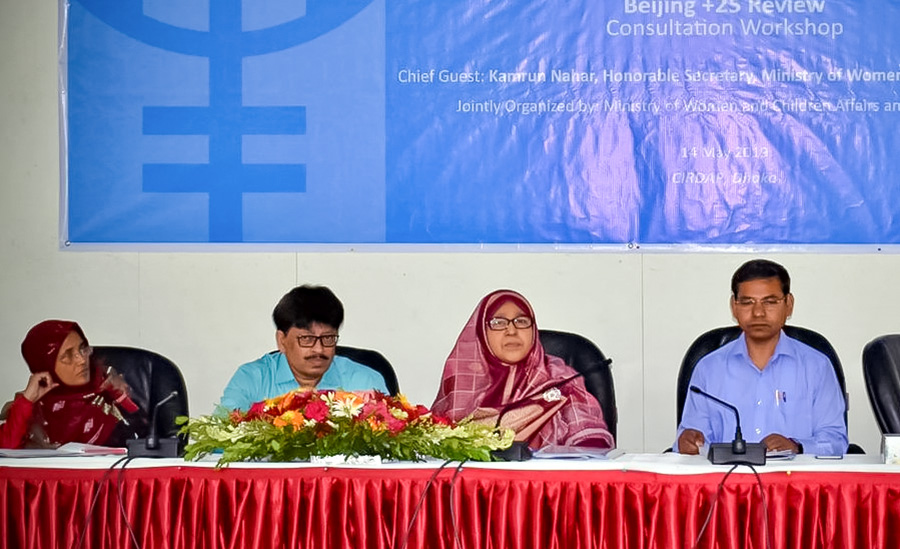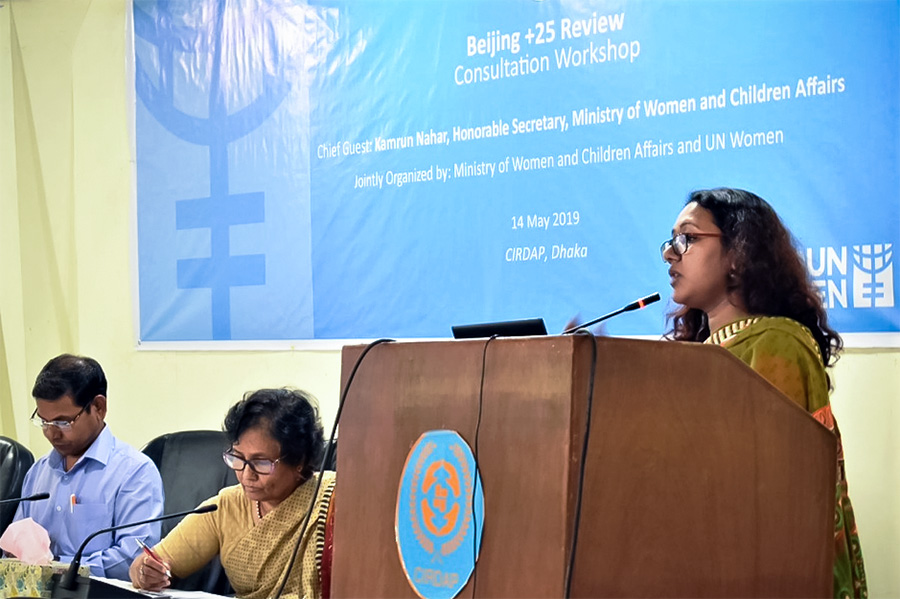Bangladesh reviews implementation of women’s rights agenda in the last 25 years
Date:
Author: Shohel Rana
Dhaka, Bangladesh — Seventy-two officials representing twenty-four ministries from the Government of Bangladesh met in Dhaka to review and discuss the progress and challenges in the implementation of the Beijing Platform for Action (BPfA) after 25 years of its adoption.

Considered to be the most visionary agenda for the human rights of women and girls, everywhere, the BPfA set out to remove the systemic barriers that hold women back from equal participation in all areas of life.
The consultation workshop aimed to provide a collaborative space for government ministries to identify key achievements, challenges and set-backs as well as the way forward in terms of achieving gender equality and women’s empowerment, keeping in line with the BPfA and gender-responsive implementation of the Sustainable Development Goals.

Organized by the Ministry of Women and Children’s Affairs of Bangladesh in collaboration with UN Women, the review meeting is part of the global review process conducted on occasion of the 25th anniversary of the BPfA, adopted in 1995 by 189 governments, including Bangladesh.
The event was inaugurated by the Secretary to the Ministry of Women and Children’s Affairs, Kamrun Nahar, who reiterated the Government’s commitments to national and international mandates to improve the lives of women and children. “As a nation we have made important strides on gender equality; nonetheless, there is still more to be done.” She added that this workshop was an opportunity to look at the progress made and requested the participating Ministry representatives to actively talk about their respective achievements and advance the discussion on the Beijing+25 review.
Some of the key issues identified at the workshop included: increasing access to skills and capacity development for women and girls; improving health and education outcomes through targeted programmes; improved access to financial services; increased and strengthened social protection programmes for women and girls.
The outcome of this workshop will inform the Beijing+25 Review report for Bangladesh that will be presented at the sixty-fourth session of the Commission on the Status of Women (CSW64), to take place at the United Nations Headquarters in New York from 9 to 20 March 2020.